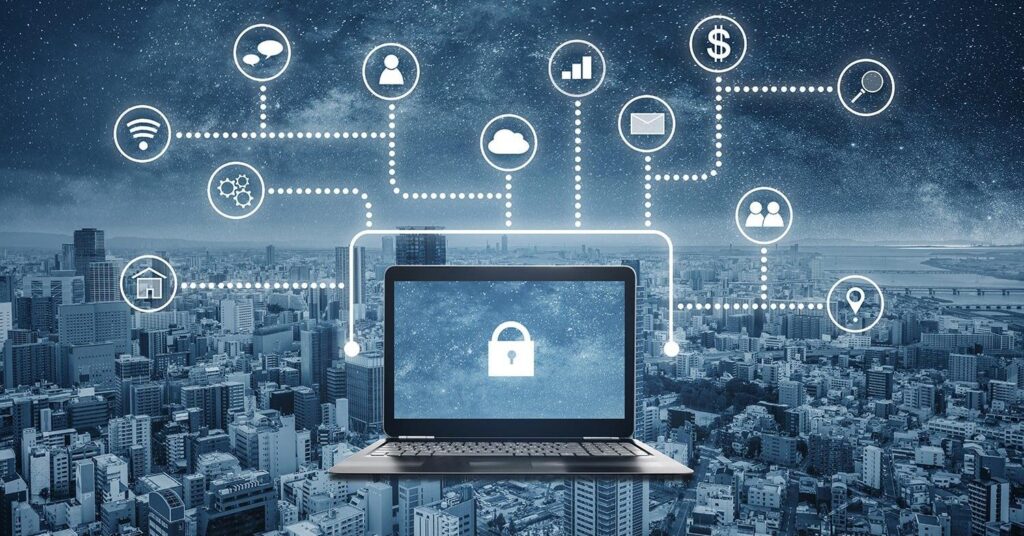In today’s increasingly connected world, where digital threats lurk around every corner, protecting our devices and personal information from malware and viruses has become paramount. With cybercriminals continuously developing sophisticated techniques to exploit vulnerabilities, individuals must adopt proactive measures for digital security. In this article, in addition to exploring essential tips for fortifying your digital fortress and safeguarding against malware and viruses, we also shed light on the role of private cloud hosting in enhancing cybersecurity. By implementing these strategies and harnessing the power of private cloud hosting, you can fortify your defenses, enhance your cybersecurity posture, and enjoy a safer online experience.
Keep Software Up-to-Date: The First Line of Defense
One of the most critical steps in preventing malware and viruses is to keep all software, including operating systems, web browsers, and applications, up-to-date. Regular software updates often include security patches that address vulnerabilities discovered by developers or security researchers. By installing these updates promptly, you close the door on potential entry points for cyber threats. Enable automatic updates whenever possible and regularly check for updates manually to ensure your software remains secure.
Install a Reliable Antivirus Solution
Equipping your devices with a robust antivirus solution is paramount to defend against malware and viruses. Choose a reputable antivirus program that offers real-time scanning, automatic updates, and comprehensive threat detection capabilities. These tools can identify and neutralize malicious software, preventing it from infiltrating your system. Regularly schedule full system scans and ensure that your antivirus software is actively protecting your device at all times.
Exercise Caution with Email Attachments and Links
Emails remain a popular vector for malware and virus distribution. Exercise caution when interacting with email attachments and links, especially from unknown or suspicious sources. Be vigilant about phishing attempts, where cybercriminals impersonate legitimate entities to trick recipients into clicking malicious links or opening infected attachments. Avoid clicking on unexpected or unsolicited attachments or links, and be wary of email requests for personal information or login credentials. When in doubt, verify the legitimacy of the email with the sender through a separate, trusted communication channel.
Safeguard Your Browsing with Private Cloud Hosting
Safe browsing habits are fundamental in preventing malware and viruses from infiltrating your devices. However, taking your cybersecurity a step further, you can leverage the power of private cloud hosting to enhance your online safety. Private cloud hosting offers a secure and controlled environment for your data and browsing activities, reducing the risk of malware and virus infections.
When accessing websites, prioritize reputable and secure platforms that employ HTTPS encryption. Private cloud hosting can provide an added layer of encryption, ensuring that the data transmitted between your device and the website remains protected from prying eyes. When sharing large files online and downloading files and applications, exercise discretion and ensure they originate from trusted sources. Private cloud hosting allows you to store and access files within a controlled environment, minimizing the risk of downloading malicious content. By maintaining strict access controls and regularly updating security protocols, private cloud hosting providers bolster your defenses against potential threats.
Regularly clearing your browsing history, cache, and cookies is essential to minimize the risk of tracking and potential exploitation of your data. With private cloud hosting, you have control over your data storage, allowing you to manage and delete browsing history and other temporary files securely.
Create Strong, Unique Passwords and Enable Two-Factor Authentication
Strengthening your digital defenses involves using strong, unique passwords and enabling two-factor authentication (2FA) whenever possible. Create complex passwords comprising a combination of uppercase and lowercase letters, numbers, and special characters. Avoid using easily guessable information like names or birthdates. Additionally, use a different password for each online account to prevent a single breach from compromising multiple accounts. Two-factor authentication adds an extra layer of security by requiring a secondary verification step, such as a code sent to your phone or a biometric factor, in addition to your password.
Final Thoughts
Protecting yourself from malware and viruses is an ongoing battle in our increasingly digital world. By implementing the five essential tips outlined in this article—keeping software up-to-date, installing a reliable antivirus solution, exercising caution with email attachments and links, practicing safe browsing habits, and creating strong, unique passwords with two-factor authentication—you can bolster your digital fortress and enhance your cybersecurity posture. By remaining vigilant, staying informed about emerging threats, and consistently implementing these strategies, you can safeguard your digital life and enjoy a safer online experience.
